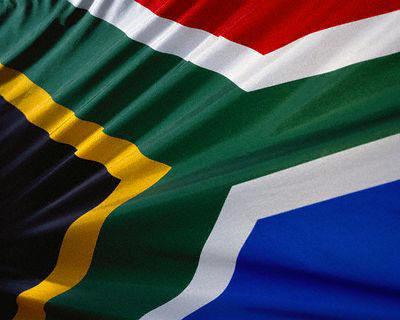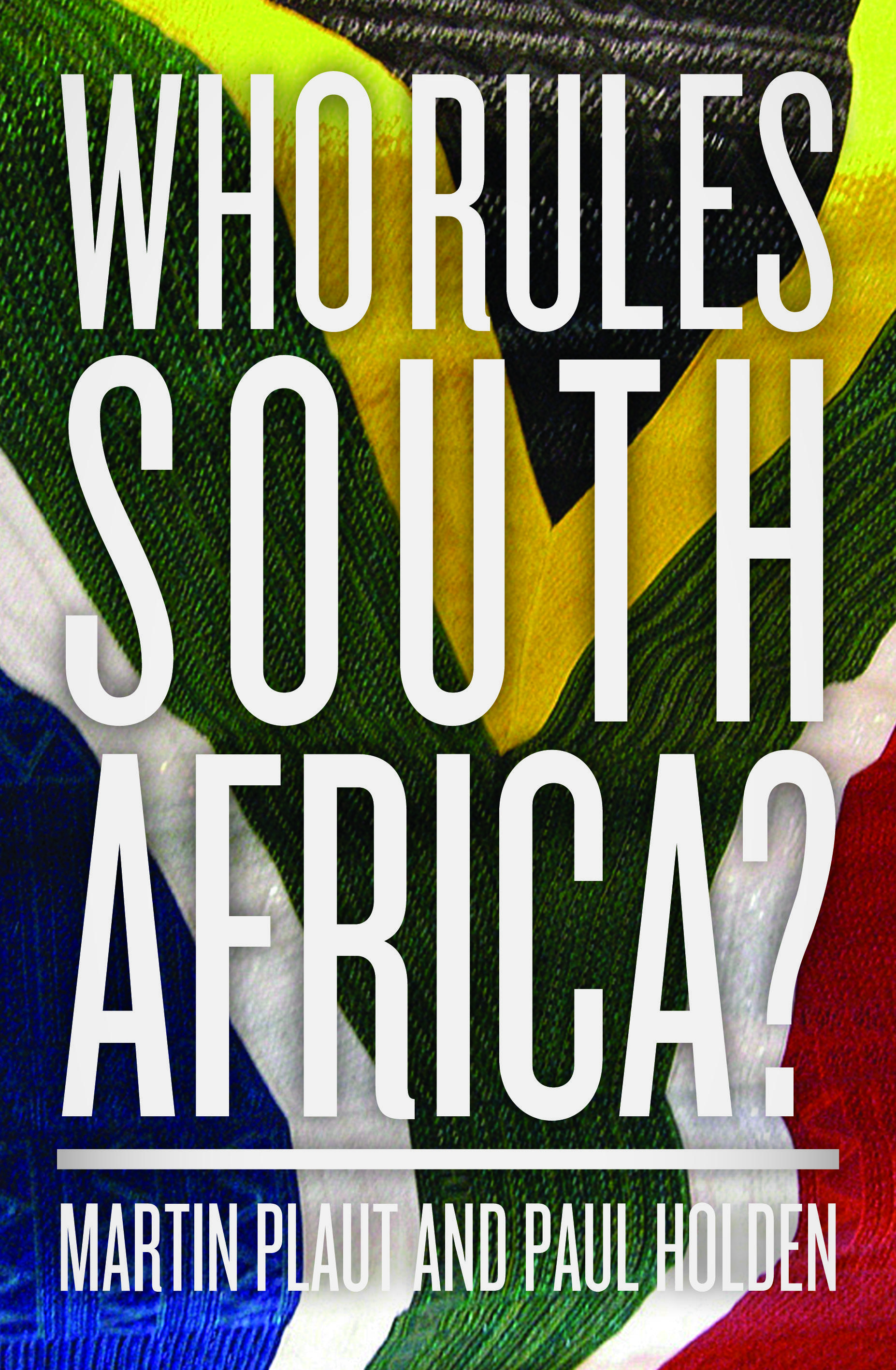Who rules South Africa? The threat from “˜democracy lite’ – By Martin Plaut

 Martin Plaut is co-author with Paul Holden of: “˜Who rules South Africa?’ published by Biteback Publishing.
Martin Plaut is co-author with Paul Holden of: “˜Who rules South Africa?’ published by Biteback Publishing.
The African National Congress (ANC) has just concluded its policy conference. The policy documents were – as ever – massively detailed and of considerable interest. But few delegates seemed much concerned by them. The real attention was focussed on the ANC’s next conference in December, when the party will elect its new leadership. Since open campaigning is frowned upon inside the party, this was one of the few real opportunities to lobby for support. President Jacob Zuma is facing a challenge from his Deputy President Kgalema Motlanthe.
So fierce were the clashes between rival factions that fights broke out. President Jacob Zuma had to hurriedly leave the conference hall to get away from the clashes. Pepper spray was used to regain control. Worse was to follow. When one of the delegates, Wandile Mkhize, arrived home in KwaZulu-Natal, he was killed by shots fired from a moving car. Mkhize had led ANC delegates in songs praising President Zuma and was in the forefront when Zuma’s supporters confronted Motlanthe’s faction at the conference.
Commenting on the murder, Zwelinzima Vavi, general secretary of the ANC aligned trade union movement, Cosatu, deplored the factionalism that had led to Mkhize’s death. “The problem is that when we are on public platforms, we speak against factionalism. But as soon as we leave those platforms, we do exactly what we have been saying must not be done. We sing songs praising individuals,” he said. Vavi went on to reject suggestions that this was a killing from outside the ANC. “Political killings are so commonplace in KwaZulu-Natal that we can no longer blame them on the IFP (Inkatha Freedom Party) warlords because it’s an inside job,” Vavi said.
If this had been an isolated phenomenon it would have been serious enough, but it is not. Clashes and killings are now a regular phenomenon inside the ANC, as Vavi suggests. Party meetings have to be abandoned or postponed since it is too unsafe for them to be held.
It is not difficult to see why this is the case. Gaining access to senior ANC positions is one of the few means ordinary South Africans have of escaping poverty. A party position, even in a local council, allows access to state contracts and these can and are routinely used to feather the nests of ANC stalwarts. This phenomenon is recognised and condemned by the party and its allies in the trade unions and the Communist Party, who have attacked what they call the “˜predatory state.’
Once ensconced in a position, party members can become become “˜tenderpreneurs’, who use their authority to procure state tenders for themselves and their wider client base. This practice has become deeply entrenched. In the ANC heartland of the Eastern Cape, one of the worst affected provinces, the Auditor-General reported that three-quarters of all government contracts were awarded to companies owned by state officials and their families. In 2009-10 the province was unable to account for no less than R5 billion of government expenditure – the result of “˜irregular, unauthorised, fruitless and wasteful expenditure’.
These practices go right to the top, with most of the Cabinet and many senior members of the ANC National Executive now directly involved in businesses which receive state patronage.
It is the poor who suffer most from this systematic looting of state assets, but all South Africans bear the burden of corruption. Nor is there any obvious remedy. It may seem strange to suggest that the country’s democratic processes are weak when elections are regularly held and are – in the main – scrupulously conducted. Yet this is certainly the case, for the institutions that are meant to hold the executive to account hardly function. Parliamentary debate is lacklustre and Ministers treat their colleagues with contempt, regularly refusing to provide the information they request. This is the result of two tendencies that have become clear from our work for “Who rules South Africa?”
The first is a negative consequence of not having constituencies, which allow members of the public to campaign against and vote out of office an individual Member of Parliament. Anyone dissatisfied with the state of their housing, roads or schools has the monumental task of ousting the entire government to get their point home. The proportional representation system means that MPs are answerable only to their parties, which decide where they will be on the all-important, career-defining party lists.
The public can only fume if services are seldom, if ever, delivered. Little wonder that they regularly take to the streets to make their voices heard. Since 2008/2009, by our calculations, as many as 2,872,000 people have taken part in service delivery protests. This equates to roughly 5% of the total population of the country.
Secondly, the 1994 code of conduct for ANC MPs makes it abundantly clear that its MPs are party representatives first and foremost. It specifically states that: “˜All elected members shall be under the constitutional authority of the highest decision-making bodies of the ANC, and decisions and policies of the highest ANC organs shall take precedence over all other structures, including ANC structures in Parliament and government.’ The code of conduct further forbids any “˜attempt to make use of the parliamentary structures to undermine organisational decisions and policies’.
This has further undermined the centrality of Parliament. Hardly surprising then that some MPs play little part in its debates. This left the ANC chief whip bemoaning the “˜empty benches’ and complaining that their absence will “˜erode the image and integrity of this institution and betray the trust that the people placed in us’.
When Parliament has attempted to fulfil its role in holding the executive to account it has been sharply slapped down. The Parliament’s Standing Committee on Public Accounts (Scopa) attempted to scrutinise how the billions of Rands were spent on the 1999 Arms Deal. They were given short shrift. Andrew Feinstein, the ANC MP who had led the enquiry, lost his position for refusing to fall into line.
Tony Yengeni, then Chief Whip of the ANC in Parliament, explained the error of Feinstein’s ways. “Some people have the notion that the public accounts committee members should act in a non-partisan manner,” Yengeni said. “But, in our system, no ANC member has a free vote.” We show how, at every key point in the Arms Deal, Parliament was ignored or actively browbeaten.
If this is the case, then where does power now really reside?
For a start, it is held in the informal councils of the Tripartite Alliance, which brings together the ANC and its allies in the COSATU unions and the Communist Party. The debates inside these caucuses are where issues are thrashed out. This explains, at least in part, why these relationships are frequently so heated. These are not just discussions between friends or colleagues; they are where the real decisions are made that shape the future of the country.
But we need to look further than this, since other centres of power stand behind the Alliance.
These include:
- Rival South African intelligence agents and agencies, which have involved themselves in the ANC’s internal political struggles;
- The growing black middle class who have made their way in the world through Black Economic Empowerment policies and state tenders, some of which don’t stand up to scrutiny;
- The rising influence of the funders of the ANC, as the party of government, including the white elite.
Perhaps the most insidious, and least reported, influence is that of organised crime. The rise of criminal networks, whether from Colombia or Nigeria, Thailand or Italy now play an undeniable role in South African life.
Efforts have been made to tackle these networks, but these attempts have been compromised by corruption. A three-year long investigation into organised crime in southern Africa by the Institute for Security Studies was damning in its conclusion. “This research has thus far found that corruption not only facilitates organised crime but is indeed an integral part of it. It plays a role in virtually every type of organised criminal activity surveyed.”
Interviewed as part of the research for our book, a senior government official, who asked not to be named, warned of the real dangers facing the government. He suggested that sections of the ANC leadership are in danger of being “˜captured’ by organised crime.
This does not imply that the country is today in the grip of criminal networks, as some Latin American or West African states are. South Africa still has an independent judiciary and a well-honed Constitution. It has a robust (if sometimes bludgeoned) independent media and it has a well-developed civil society. But the warning signs are there. Unless they are heeded the direction of travel is clear and the outcome would be disastrous for the country and the region.
Who Rules South Africa will be launched by the Royal African Society on Thursday 2nd August 2012 at SOAS. Books will be sold at a discounted price.






[…] Party meetings have to be abandoned or postponed since it is too unsafe for them to be held. Read more… Share this:ShareTwitterFacebookLike this:LikeBe the first to like this. This entry was posted in […]
[…] Juli 2012 The Threat from Democracy Lite … Very well written, outspoken, provoking and worth reading! Martin Plaut, co-author with […]
[…] Complete article: African Arguments […]
[…] (Figure 1) while the economy becomes less innovative (Figure 2); combined with (ii) patronage, Â rent-seeking and corruption within the state for access to the fruits of the mining sector, including threats of […]
[…] (Figure 1) while the economy becomes less innovative (Figure 2); combined with (ii) patronage,  rent-seeking and corruption within the state for access to the fruits of the mining sector, including threats […]